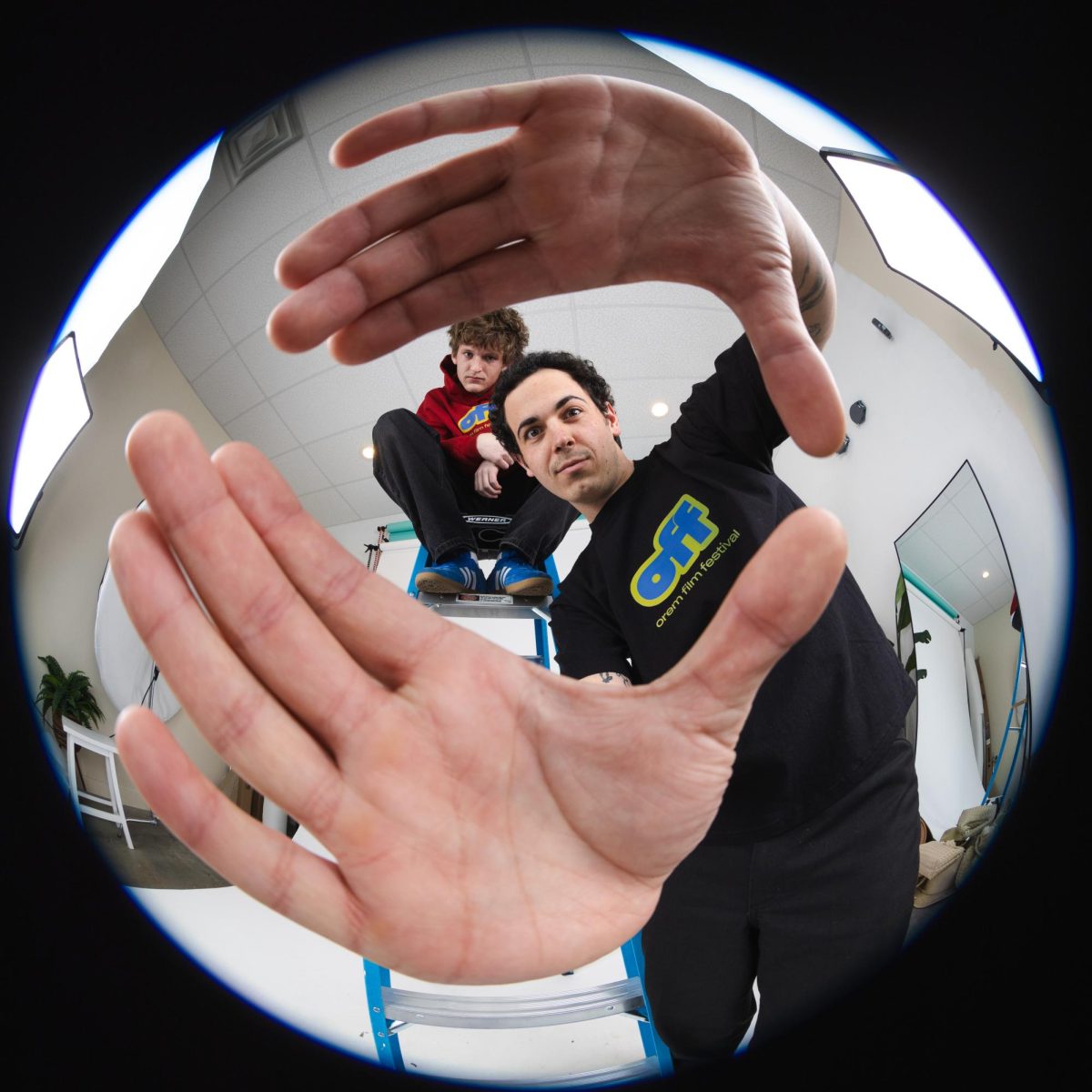World-renowned pianists and Weber alumnae, Fan-Ya Lin and Shijun Wang, performed classical Russian piano pieces together at the Browning Center as a homage to the university they consider home.
Also alumnae of Juilliard, these musicians accomplished a standing ovation and calls for an encore after their performance with only three days of practice together. Lin and Wang attribute their success to the passion they possess to play for audiences.
Although both musicians expressed admiration for their work, they also revealed their love for another similarity: Weber State.
Wang, an assistant professor of piano, has performed in across the United States as well as in Germany, France, Norway, China, Mexico and Japan.
Wang explained the Director of Keyboard Studies, Dr. Yang, “has built the program from scratch.”
He also said that when Yang arrived at Weber State, there were only two upright pianos and one had a broken leg. Now there is a six-figure piano, sometimes two, in every practice room in the Browning Center.
“There are only two schools in the whole nation that gives the student the ability to practice on brand new seven-foot Steinway pianos and we are one of those two schools,” Wang said.
He continues to explain how, at Juilliard, students would have to fight for a practice room in order to have the possibility to practice on a nice instrument, “and you don’t always win. But here, it is guaranteed.”
Wang also explained that the competitive nature of the students at Juilliard would, at times, leave him feeling suffocated.
And although there are times he misses his time at Juilliard, Wang said, “I didn’t think the administration cared about the student as much as we do here at Weber State.”
An aspiring concert pianist from the age of four, Lin moved to Utah to study at Weber State, leaving behind everything that was familiar to pursue her occupational goal. Lin shares this school pride and said she was accepted to both Juilliard and Oberlin but loved Dr. Yang’s teaching so much she chose Weber.
“I think what really stood out here was how friendly the students were and also the very esteemed faculty here that really want you to be the best at what you do,” she said.
She continued to explain how the music community at Weber State is extremely supportive.
“My career was founded here. My foundation and my base are here and I love coming back after having graduated,” Lin said.
The pieces selected for the performance were Sergei Rachmaninoff’s “Suite No. 2 for Two Pianos Op.17,” Dmitri Shostakovich’s “Concertino for Two Pianos Op. 94” and Igor Stravinsky’s “Three Movements from ‘Petrouchka.’”
Lin, a native of Taipei, Taiwan, said she relates to Rachmaninoff’s piece the most because both came to America willingly, Rachmaninoff during the Russian Revolution of 1917 and Lin to further her education, but both missed their home countries.
The second Russian composer’s music played that night was Shostakovich.
Lin said Shostakovich composed music during Stalin’s Russian rule and was asked by the Russian government to compose a significant amount of his music to promote communism.
Lin said during the suspicious atmosphere and high-pressured society during Stalin’s era, it became difficult to distinguish what actions or behaviors may offend the government.
“In this piece, you can hear a lot of fake happiness. So, it sounds like you’re happy, but you’re not. It’s like you’re playing with a gun to your head,” said Lin.
She explains “Petrouchka”, the last piece played, was originally written for orchestras to accompany a ballet and was composed during the wartimes in Paris.
All the writers, composers and artists would gather together to share their stories, their artwork, and their compositions with one another, Lin said.
“When he composed this music for the dancers, it was almost like a scandal because ballet is considered a very graceful and a very high-end art,” Lin said. “But to be in synch with this piece, they have to dance more primitively, like jumping with two feet compared to those beautiful motions and this caused quite a response at the time.”
To summarize the entire night in a sentence, Lin expresses, “It’s a lot of suffering and pain that’s hard to imagine, but through music, you can almost see it happening.”




















